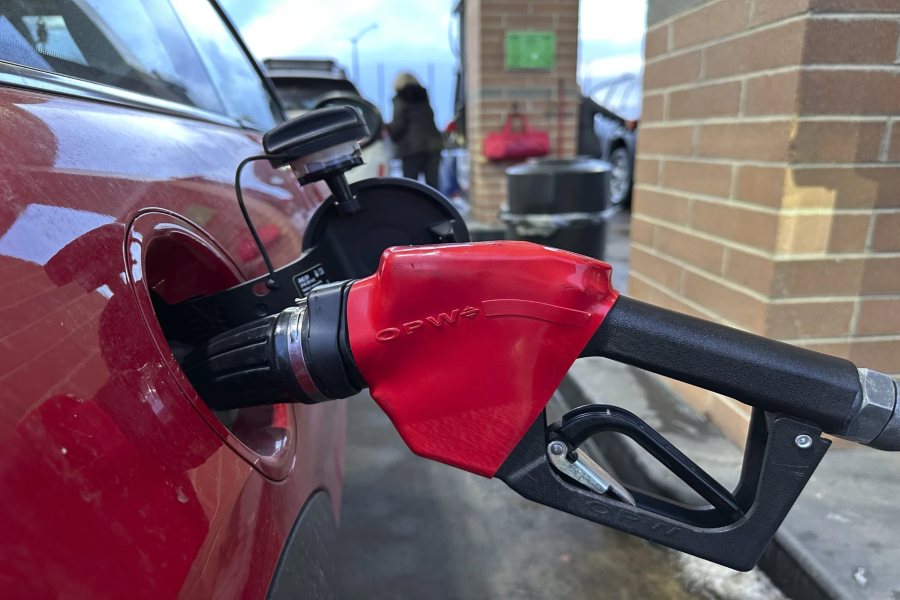U.S. consumer sentiment hit a three-year low in May, as concerns about President Donald Trump’s trade war with China and rising inflation continue to weigh heavily on Americans. The University of Michigan’s consumer sentiment index dropped by 2.7% on a monthly basis to 50.8, marking the second-lowest level in the survey’s 75-year history. The index has plummeted nearly 30% since January, signaling growing unease about the economy’s future.
The decline in sentiment highlights how the trade war and its inflationary effects are continuing to shape public perceptions. Americans are increasingly worried about the long-term impact of rising import duties on their purchasing power, with many fearing that inflation will continue to rise, further eroding their standard of living. The trade war, which saw President Trump impose significant tariffs on Chinese goods, has sparked fears of higher prices for everyday products. Although recent negotiations have resulted in a deal that reduces tariffs from 145% to 30% on Chinese imports, the economic damage has already taken its toll. Walmart, the nation’s largest retailer, announced price hikes earlier this week, with plans to increase prices further in June and July. With back-to-school shopping just around the corner, these price increases are expected to affect millions of American households. Despite the recent tariff reduction, consumer sentiment remains profoundly negative, as many Americans still feel inflation’s effects from previous trade policies.
The University of Michigan’s survey also revealed a sharp partisan divide in consumer sentiment. The sentiment index for Democrats plummeted to 33.9, the lowest reading since 1980, and far below levels seen during the COVID pandemic or the Great Recession. Republicans, on the other hand, had a higher sentiment score of 84.2, though it had slipped from 90.2 in April. This partisan divide has raised questions about how political affiliation shapes public opinion on the economy, making it more difficult for policymakers to address the nation’s broader challenges.
Consumers’ inflation expectations are also rising, adding to the economic anxiety. Over the next 12 months, Americans expect inflation to jump to 7.3%, the highest level since 1981. The expectation for inflation over the next five years is 4.6%, up from 4.4% in the previous month. These projections concern economists and policymakers, as high inflation expectations can become self-fulfilling. If consumers expect prices to rise, they may adjust their behavior, demanding higher wages or hoarding goods, pushing prices even higher. Despite these concerns, Federal Reserve Chair Jerome Powell has dismissed the University of Michigan’s inflation expectations as an “outlier,” pointing to market-based measures that have remained stable. Still, the rising inflation expectations from the Michigan survey could influence the Federal Reserve’s decision on interest rates, making it less likely that the central bank will cut rates shortly.
Walmart, which serves 90% of the U.S. population, confirmed this week that it has started increasing prices due to the trade war tariffs. The company plans to raise prices over the summer, just in time for the back-to-school shopping season. With its enormous customer base, Walmart’s price hikes are expected to significantly impact consumer wallets, especially those already struggling with the aftereffects of post-pandemic inflation.
Despite the steep drop in consumer sentiment, some economists argue that the U.S. economy remains relatively stable. Unemployment is low, and consumer spending drives growth in various sectors. However, the trade war, rising inflation, and growing political divisions present uncertainty affecting Americans’ confidence in the economy.
As inflation expectations continue to rise and trade tensions remain, U.S. consumer sentiment is unlikely to recover anytime soon. The deepening political divide also complicates efforts to address economic challenges. With rising prices, an uncertain trade environment, and growing anxiety about inflation, the road ahead for the U.S. economy may be bumpy. The coming months will be crucial in determining whether the U.S. can stabilize its economy or if inflation and trade wars will continue to weigh on consumer confidence.
The future of the U.S. economy remains uncertain as Americans grapple with the effects of inflation, trade wars, and divided political opinions. Whether consumer sentiment can bounce back depends on various factors, including the resolution of trade disputes, the ability of the Federal Reserve to manage inflation, and the broader political climate leading up to the 2024 election.

